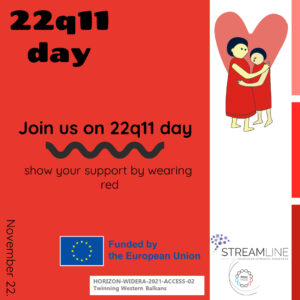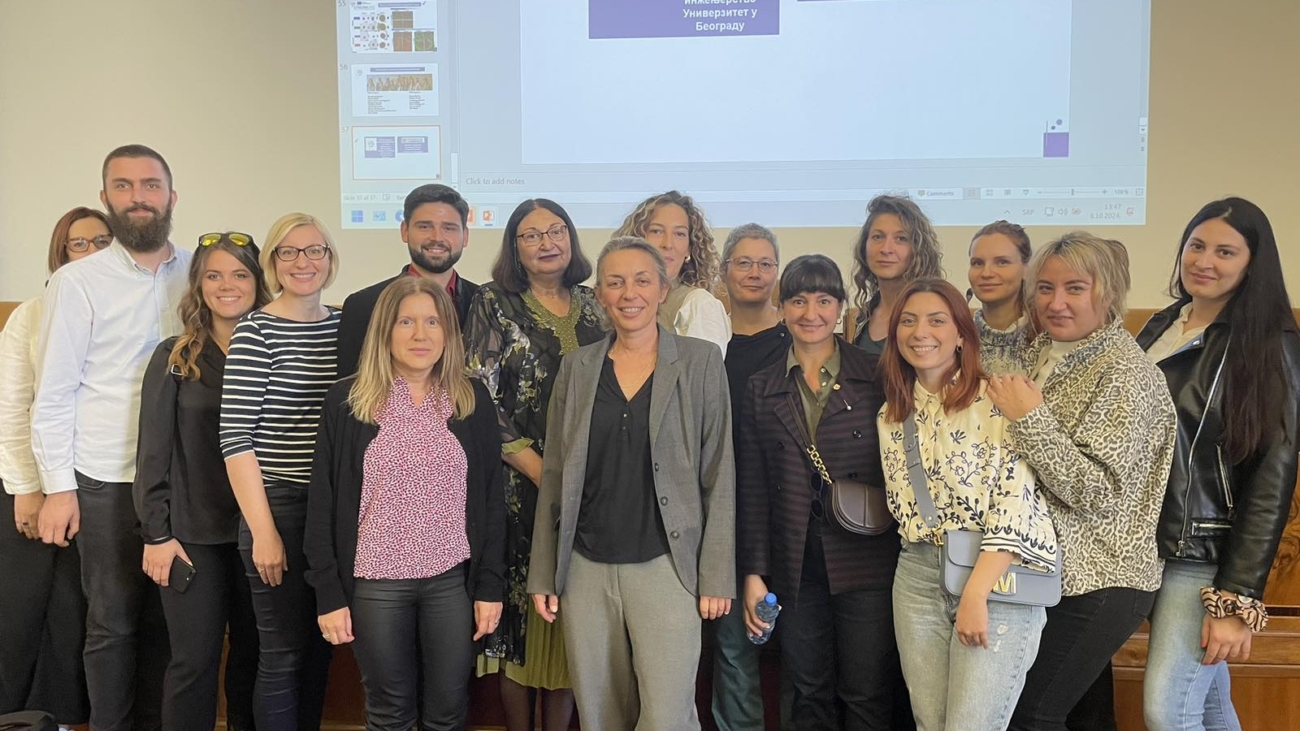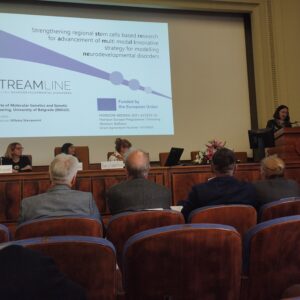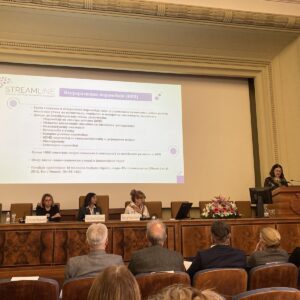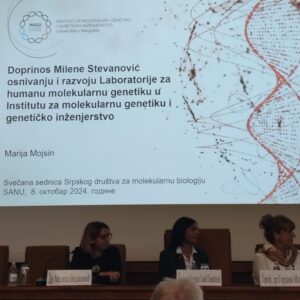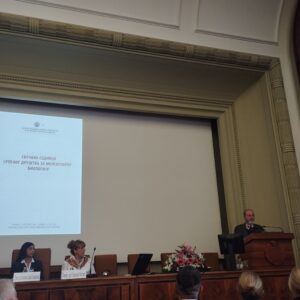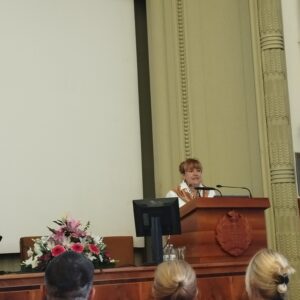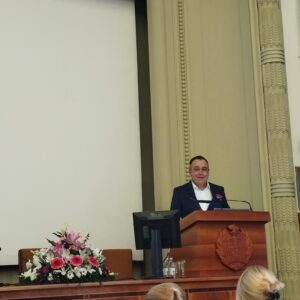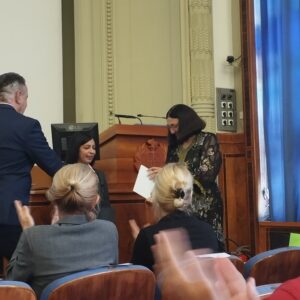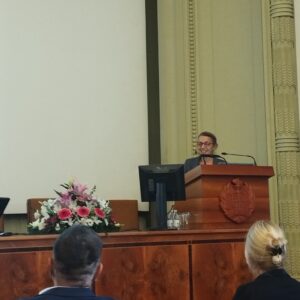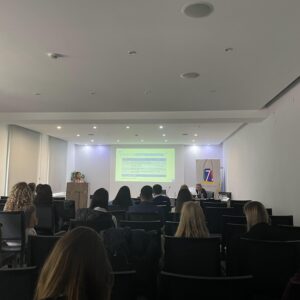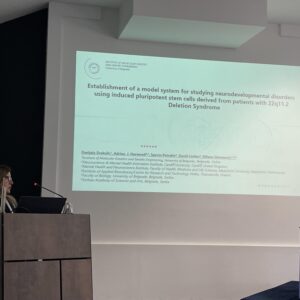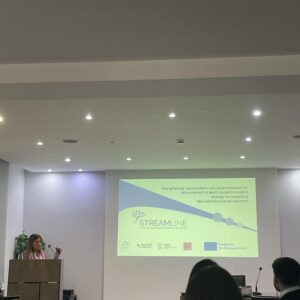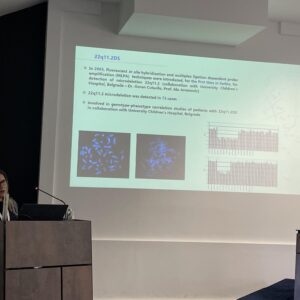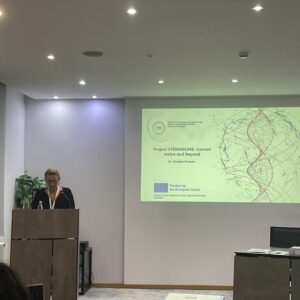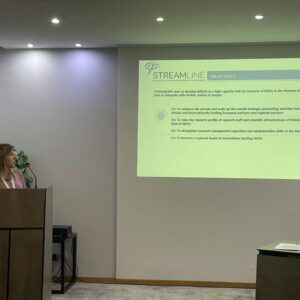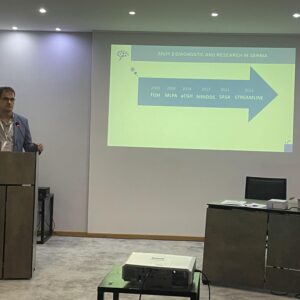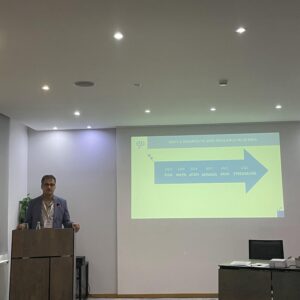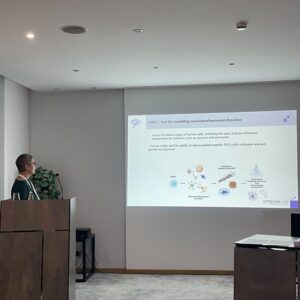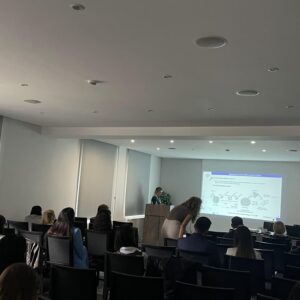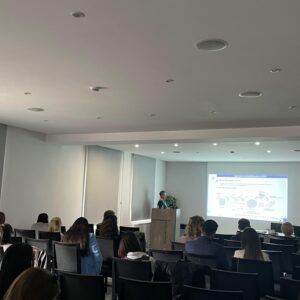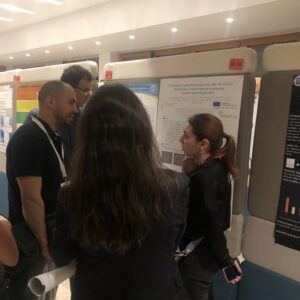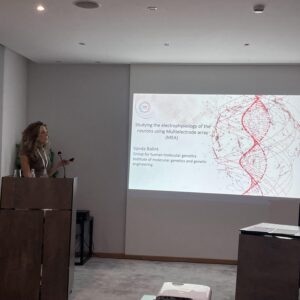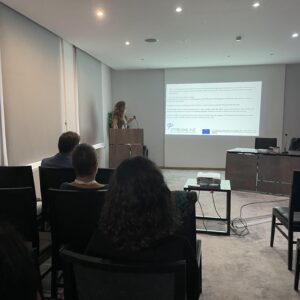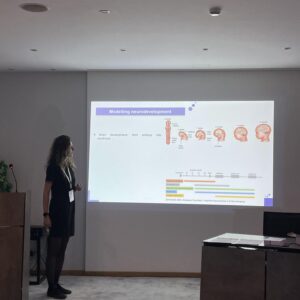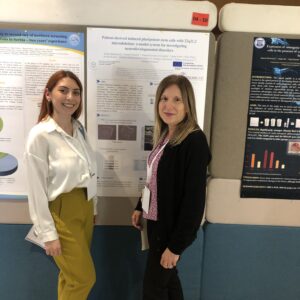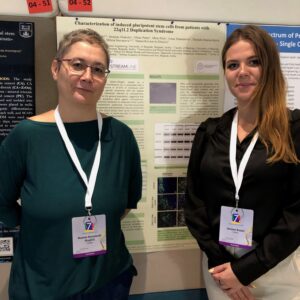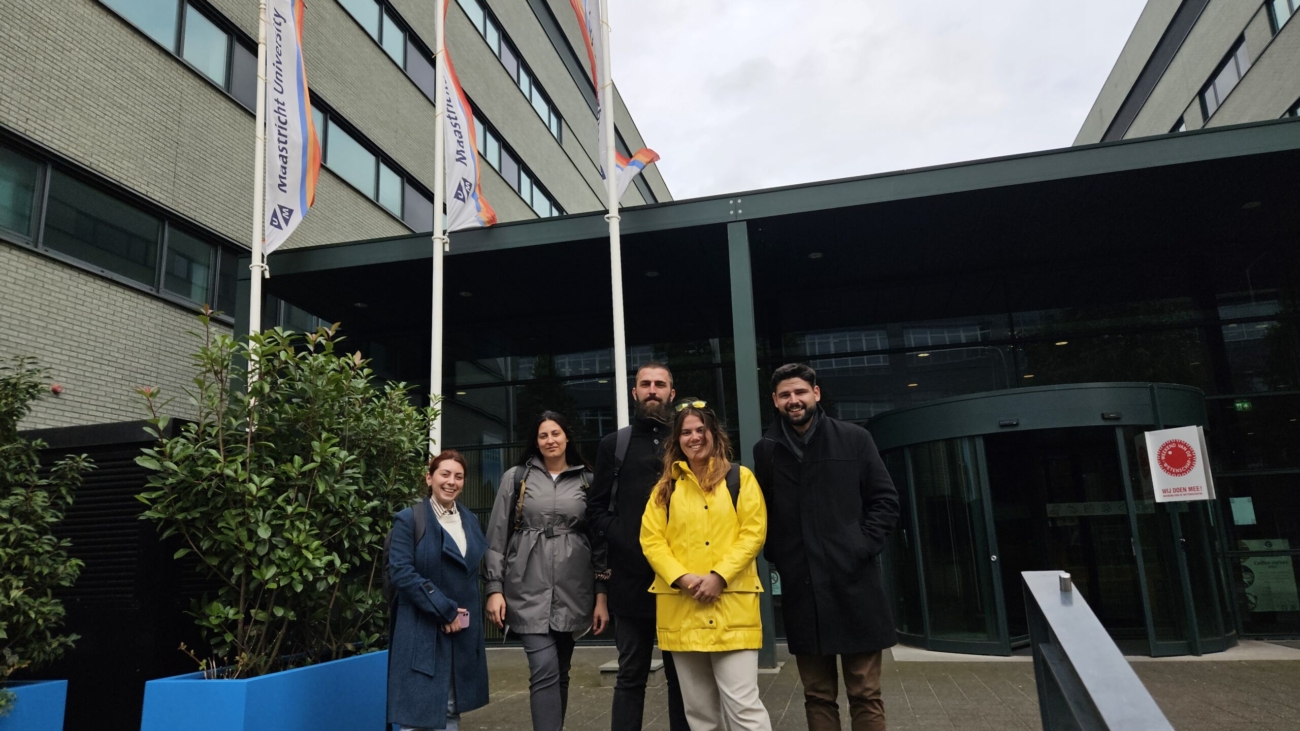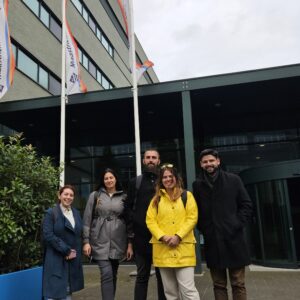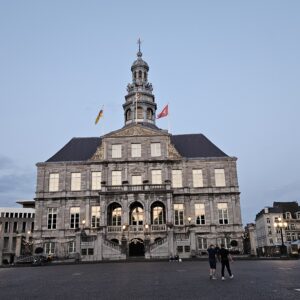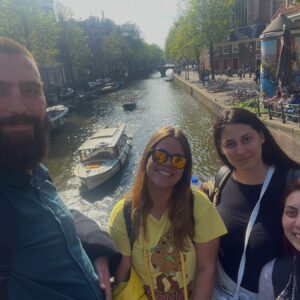November 22nd is the International 22q11 Day, with initiative to increase awareness about 22q11.2 deletion syndrome (22q11.2DS) by wearing a red wardrobe and lighting several buildings in red around the Europe.
22q11.2DS is a genetic disorder caused by a heterozygous microdeletion of region q11.2 of chromosome 22. It is the most common microdeletion syndrome in humans with an estimated incidence of approximately 1/4000 per live births. After Down syndrome, 22q11.2 deletion syndrome is the second most common cause of developmental delay and congenital heart diseases. The spectrum of clinical manifestations in patients with this syndrome is very variable, even within the same family. Approximately, 25% of patients with 22q11.2DS develop schizophrenia. Intellectual disability is detected in approximately 45% of patients with 22q11.2DS, while Autism Spectrum Disorder is seen in 14-50% of cases. It accounts for approximately 2.4% of people with developmental disabilities and approximately 10% to 15% of people with Tetralogy of Fallot (a type of heart defect). Males and females of all ethnic backgrounds are affected in equal numbers.
A diagnosis is quite challenging for 22q11 individuals due to their extremely diverse range of symptoms. Actually, 50% of people with 22q11 never receive a diagnosis. However, early treatment of the symptoms can lessen their severity, thus a person with 22q11 can have a far better life if diagnosed early. Additionally, early diagnosis helps educators better adjusting the learning environment, health experts better modifying their treatments, and parents better preparing for the arrival of their kid. Increasing public knowledge will thus lead to earlier illness diagnosis and better treatment.

